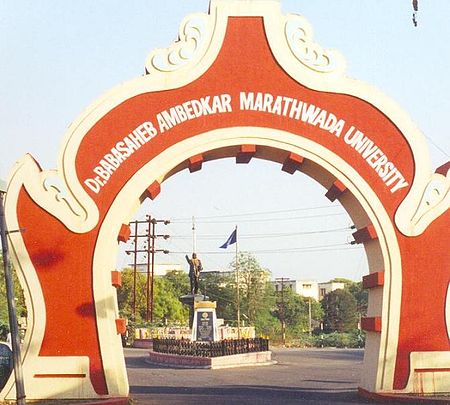
The Renaming of Marathwada University: A Symbol of Resistance and Triumph
The renaming of Marathwada University to Dr. Babasaheb Ambedkar Marathwada University in 1994 was more than just a change in nomenclature. It was a profound recognition of Dr. B.R. Ambedkar’s legacy and his relentless fight for the rights of marginalized communities, especially Dalits. This renaming marked a pivotal moment in the history of the Dalit movement in Maharashtra, symbolizing both the struggles and victories of the oppressed. This journey, however, was marked by intense discrimination, brutal atrocities, and a fervent struggle by Dalits against the dominant caste communities. The renaming was not merely a change in nomenclature but a powerful assertion of identity and dignity for the oppressed.
The Struggle for Renaming
The demand to rename Marathwada University after Dr. Ambedkar emerged as part of a broader movement to honor his contributions to social justice, education, and equality. For the Dalit community, Dr. Ambedkar was not just a leader but a beacon of hope and empowerment. The university, located in a region where caste discrimination was deeply entrenched, became a focal point for this demand.
The journey to renaming was fraught with intense discrimination and brutal atrocities inflicted by dominant caste communities. The proposal faced vehement opposition from upper-caste groups who viewed the renaming as a threat to their entrenched privileges. The resistance manifested in violent protests, social boycotts, and attacks on Dalit activists and their families.
The Role of Students
During this period, Dalit students played a crucial role in mobilizing support for the renaming. Their anguish and resistance found expression in various forms, including a poignant poem sung during a long march in Aurangabad:
Oh damn you, Vithal, oh you black idol Ram!
Why did you give me birth as a human?
Oh you cruel god of the suvarnas (caste Hindus),
If you had given me life as a parrot,
I would have been at least taught by the suvarnas how to speak!
Oh God! would that you had made me a poisonous snake,
So that at least one day in the year, on Nag Panchami Day,
They would have fed me milk!
Or if you had given me the life of a dog,
These suvarnas would have thrown a piece of bread before me and caressed me.
But you, cruel god, gave me the birth of a human,
Made me a Mahar and killed me!
The fittest punishment for any dacoit or criminal
Is not death or flogging,
But make him a Mahar or a Dalit for a day.
This poem encapsulates the deep-seated pain and frustration of the Dalit community, reflecting the systemic discrimination they endured. It also highlighted their resilience and determination to fight for dignity and equality.
The Victory and Its Significance
Despite the intense opposition, the renaming of the university was eventually approved, symbolizing a significant victory for the Dalit movement. It represented not only the recognition of Dr. Ambedkar’s contributions but also the acknowledgment of the historical injustices faced by Dalits.
The renaming served as a beacon of hope for marginalized communities, inspiring further struggles for social justice and equality. It also underscored the power of collective action and the importance of preserving the legacy of leaders like Dr. Ambedkar.
While the renaming of Marathwada University was a landmark achievement, the struggle for Dalit rights and social justice continues. The university has since become a hub for academic and social discourse on caste, inequality, and human rights. It serves as a reminder of the ongoing need to address caste-based discrimination and promote inclusivity. The legacy of Dr. Ambedkar and the fight for equality must be carried forward through education, advocacy, and continued resistance against caste-based oppression. The renaming of the university stands as a testament to the enduring spirit of the Dalit community and their unwavering commitment to justice.




I don’t think so just name change has brought any significance changes. The then Leaders have no objectives to lead mass. 13 years if they would have worked upon objectives of Bhartiya Boudha Mahasabha would have brought significance changes in communities. There is no single regional party of the Ambedkarites in any of the states. NO national heroic figures so for. It was just time pass agenda of the leaders of downtrodden communities.
What happened to Milind College of Aurangabad it would been bestowed with the status of deemed university long ago.
Which Institutional set up established by The Babasaheb is active and parallel to elites’ Institution like RSS.
We are failed to lead the Carvan of Babasaheb and we are failed to be worthy Buddhist as expected by the Babasaheb.
We should not ignore the result what are being getting after Babasaheb’s Parinirvan .
There are many Institutions in India name after B.R. Ambedkar.
In fact, when the agitation was at peak, I was one among who did hunger strike at my Town in Maharashtra in 1994. I was in Class 12.
Today when I revisited and studied the movement of Namantar. I felt, it was not movement at all. Its childish act fed cleverly by timid elites of Maharashtra.